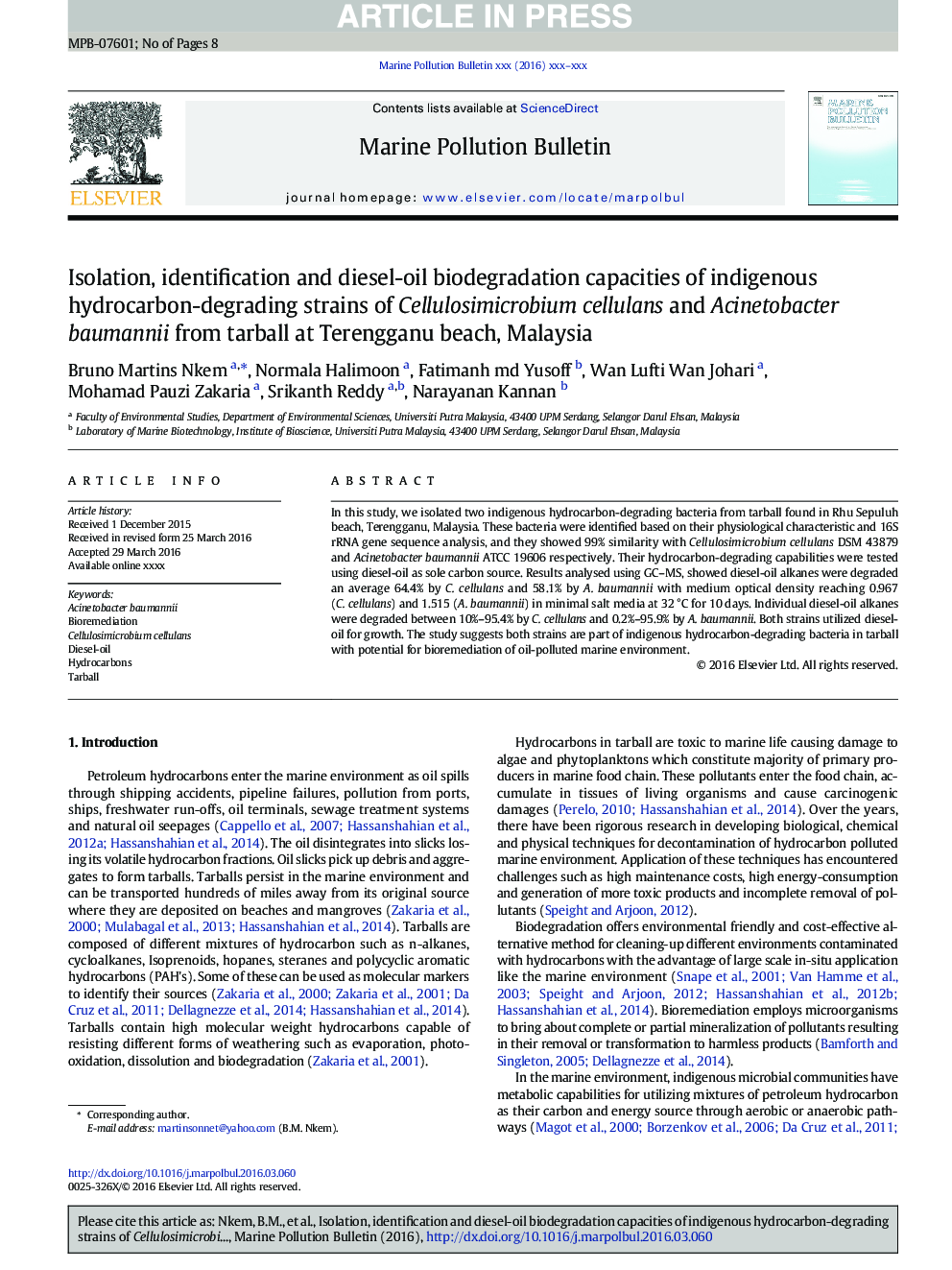| Article ID | Journal | Published Year | Pages | File Type |
|---|---|---|---|---|
| 6356221 | Marine Pollution Bulletin | 2016 | 8 Pages |
Abstract
In this study, we isolated two indigenous hydrocarbon-degrading bacteria from tarball found in Rhu Sepuluh beach, Terengganu, Malaysia. These bacteria were identified based on their physiological characteristic and 16S rRNA gene sequence analysis, and they showed 99% similarity with Cellulosimicrobium cellulans DSM 43879 and Acinetobacter baumannii ATCC 19606 respectively. Their hydrocarbon-degrading capabilities were tested using diesel-oil as sole carbon source. Results analysed using GC-MS, showed diesel-oil alkanes were degraded an average 64.4% by C. cellulans and 58.1% by A. baumannii with medium optical density reaching 0.967 (C. cellulans) and 1.515 (A. baumannii) in minimal salt media at 32 °C for 10 days. Individual diesel-oil alkanes were degraded between 10%-95.4% by C. cellulans and 0.2%-95.9% by A. baumannii. Both strains utilized diesel-oil for growth. The study suggests both strains are part of indigenous hydrocarbon-degrading bacteria in tarball with potential for bioremediation of oil-polluted marine environment.
Related Topics
Physical Sciences and Engineering
Earth and Planetary Sciences
Oceanography
Authors
Bruno Martins Nkem, Normala Halimoon, Fatimah Md Yusoff, Wan Lufti Wan Johari, Mohamad Pauzi Zakaria, Srikanth Reddy Medipally, Narayanan Kannan,
